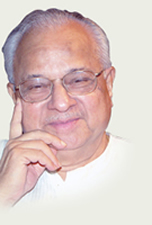Early Life
Socrates’ early life is wrapped in mystery, little being known except what comes out from his conversations and depositions later in life. Having served with some distinction as a soldier at Delium and Amphipolis during the Peloponnesian War, Socrates dabbled in the political turmoil that consumed Athens after the War, then retired from active life to work as a stonemason and to raise his children with his wife, Xanthippe, a cantankerous woman who considered him a good-for nothing, though honest and harmless person, and could not see him die the way he was made to die. He did not have any occupation nor had any intention in pursuing one in later life and perhaps the querulous attitude of his wife led him to loneliness to remain out of her presence and be a philosopher than live with her a be a householder. He lived on the inheritance which received from his father, the sculptor Sophroniscus andused his marginal financial independence as an opportunity to give full-time attention to inventing the practice of philosophical dialogue. He was popular among the young intelligent people, though neither their families nor his family appreciated his adventure in wisdom, but which he took upon himself as a mission assigned to by God. Consequently he spent more time out in the street corners than in his home with his wife and children. He did not earn for his bread and would not object when any offered him food.
Maharshi’s early life, on the other hand was an open book. He was born in a middle class family, his father having started his career as an accounts clerk, later changed to legal profession. His mother was not educated, but literate enough to read religious scripturesin Tamil and like many women of her times, was god-fearing by nature and superstitious by temperament. A a young boy he went to the local school, responding to normal influences. His health was robust and fond of sports but he rarely mixed with boys of his age. He was given to sleep for long hours, lapsing in long spells of silence, often becoming externally recluse and internally reflective. But no extra-ordinary intelligence was seen in him in his childhood nor any spiritual inclination.
BACK NEXT

